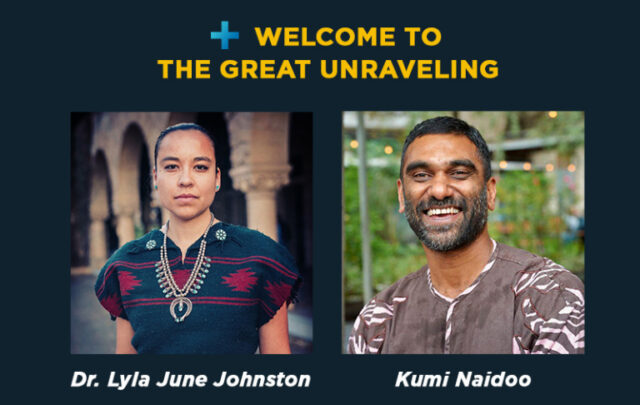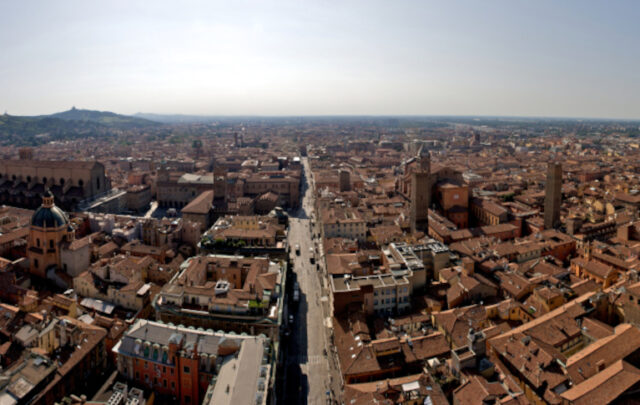 This excerpt from the Composition of Worlds: Interviews with Pierre Charbonnier, by Philippe Descola and translated by Ninon Vinsonneau and Jonathan Magidoff, is published by Polity Books and is reposted here with the permssion of the publisher.
This excerpt from the Composition of Worlds: Interviews with Pierre Charbonnier, by Philippe Descola and translated by Ninon Vinsonneau and Jonathan Magidoff, is published by Polity Books and is reposted here with the permssion of the publisher.
But this interview between a middle-aged anthropologist and a young philosopher does not deal with a bygone moment of anthropology— far from it. On the contrary, its intention is to show anthropology in the making, and especially that anthropology to which I have contributed during the past few decades. Under the paradoxical rubric “anthropology of nature”—paradoxical because it has resulted in the provincialization of the concept of nature itself—it seeks to incorporate nonhumans into the analysis of social life: not as productive forces, ecological constraints, foundations of symbolic systems, or backdrops to human action but as autonomous agents that provide greater depth and diversity to the kinds of relations that develop between humans and the various elements that compose their worlds. Countless non-European civilizations have invited us to perform such a decentering, and yet it took a long time for anthropology, and for the social sciences as a whole, to draw the full conclusions. This book seeks to highlight the circumstances that gave rise to the intuitions that allowed nonhumans to be brought back into the study of human praxis. Those intuitions were born of the intellectual and political tumult of 1970s and 1980s France, further kindled by ethnographic fieldwork—which was every bit as stimulating—in native Amazonia, whose enigmatic character our generation of anthropologists was just discovering, even while trying to give it intelligible form.
It is a tragic paradox that the very civilization that invented the idea of nature also became, as its values spread across a large part of the world, the instrument of the destruction of what that idea is meant to represent. For it is in the West, around the Mediterranean basin to begin with, and then in Western Europe, that this extraordinary idea first emerges: that all living beings and the inorganic surroundings in which their existence takes shape form an autonomous whole, from which humans have removed themselves. This idea did not emerge all at once. Ancient Greek sages, philosophers, and physicians had already developed the notion that the cosmos could be explained separately from the decrees of the gods and the effects of human action. They had objectivized, with Aristotle, a field that is made up of all beings that display an order and obey laws. Yet their version of nature was not as comprehensive as that of the moderns. For the advent of modern nature, there had to be a second separation, humans had to become external and superior to nature. It was Christianity that performed this second mutation, imposing, as it spread across Europe, the dual idea of the transcendence of the human being and of a universe extracted from nothingness by divine will. From this, humans derive the right and duty to administer the earth, God having formed them in order to exert control over creation, to organize and arrange it according to his needs. The final stage in the invention of nature took place in seventeenth-century Europe, resulting from a complex process that combined changes in aesthetic sensibilities and pictorial techniques, the discovery of other continents, progress in the mechanical arts, and the greater mastery it afforded over certain environments. The transformations in geometry, mathematical physics, optics, taxonomy, and the theory of the sign emerged from a reorganization of humankind’s relationship with the world and the tools that made it possible, rather than from accumulated discoveries and improved skills. The scientific revolution of the age of reason thus legitimized the idea of a mechanical nature, in which laws accounted both for the behavior of each element in a whole considered to be the sum of its parts and for the interactions between these elements.
The rest is well known. The withdrawal of humans from the world of which they had hitherto been part, and the transformation of that deserted world into a field of investigation and experimentation, into a system of resources and—later and only for a part of it—into a site of aesthetic delectation, all this only consolidated the initial divorce between the human and the nonhuman. The form that this divorce took was a very particular cosmology, naturalism, which has developed in Europe over the past three centuries and, characteristically, affirms the absolute singularity of humans as regards their cognitive and moral attributes—they alone have a soul—and connects them to other beings only where physical attributes are concerned: they are subject to the same material laws. This gave rise to an unprecedented expansion of science and technical know-how, to the pageant of progress that it engendered, and to the unbridled exploitation of nature whose catastrophic consequences are now plain for all to see. This double movement was made possible by the external position that humans had acquired in relation to plants, animals, minerals, rivers, and mountains—now considered soulless objects and factors of production to be exploited. Other civilizations did not experience the same history; and it has been less than a century since some of them adopted the unrestrained mode of development induced by naturalism. It is not that these other cultures had been unaware of the fact that there may be differences and resemblances between the human and the nonhuman, but they did not locate them in the same way as westerners and went on thinking of nature, to borrow the poet Fernando Pessoa’s formulation, as “parts without a whole.” A large part of my life as an anthropologist has been devoted to studying and trying to understand forms of worlding that are based on schemas through which certain peoples have identified and systematized continuities and discontinuities between the human and the nonhuman and have thus sought to compose distinct worlds. This book offers a glimpse into the results of these endeavors and the circumstances that have enabled them.





